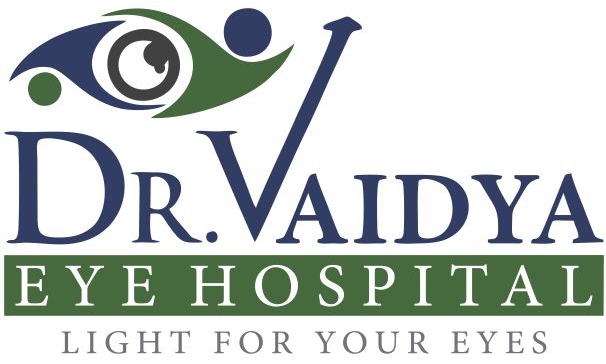As we journey through life, our bodies evolve in various ways, and our eyes are no exception. While it’s true that aging can influence our eyes, it’s important to understand that a decline in vision isn’t an inevitable outcome. Identify the signs that our eyes undergo as we grow older and a few tips to maintain great eye health throughout the aging process.
Common signs of aging eyes
1. Trouble Reading Fine Print: Presbyopia, a common age-related vision issue, typically sets in around the age of 40. This condition can make up-close activities like reading or sewing challenging. Solutions range from reading glasses to specialized contact lenses and refractive surgeries. Excitingly, new eye drop medications are emerging to improve near vision affected by presbyopia.
2. Difficulty Seeing at Night: Our eyes’ ability to adjust to varying light conditions can diminish over time. You might notice that transitioning from a bright environment to a dimly lit room takes a bit longer for your eyes to adapt.
3. Dry Eyes: With age, tear production tends to decrease, leading to discomfort known as dry eye. This condition is particularly prevalent in women experiencing menopause. Consulting with an ophthalmologist is crucial to determine the best dry eye treatment for your specific needs.
4. Objects Blending into Backgrounds: Distinguishing objects from similarly colored backgrounds may become more challenging due to a decrease in contrast sensitivity. Low vision techniques, such as using contrasting colors around your living space, can be beneficial.
5. Spots or Floaters in Your Vision: Aging can cause the vitreous, the gel-like substance in our eyes, to thicken or shrink, resulting in floaters in our field of vision. While usually harmless, a sudden increase in the number of floaters should prompt a discussion with your ophthalmologist.
6. Flashes of Light: Occasional flashes of light in your vision can be a sign of aging, often occurring when the vitreous tugs on the retina. If you notice a sudden increase in the frequency of flashes, consult your eye care specialist.
7. Glare Sensitivity: Some older adults may become more sensitive to glare. Effective strategies to reduce discomfort include adjusting lighting at home, wearing sunglasses with a wide-brimmed hat outdoors, and using matte screen filters on digital devices.
8. Cataracts: Cataracts, which involve the clouding of the eye’s lens, affect approximately half of Indians over the age of 65. It’s important to note that cataracts are often considered an inevitable part of the aging process. Fortunately, cataracts can be surgically treated to restore clear vision.
9. Age-Related Macular Degeneration (AMD): Common among adults over 50, AMD can lead to central vision loss. Early detection is key, and treatment options vary depending on the type of AMD.
10. Glaucoma: While glaucoma can affect people of all ages, it is more common among seniors. Regular eye exams are crucial to detect and manage this disease, which can lead to blindness if left untreated.
11. Diabetic Eye Disease: Diabetic retinopathy is a leading cause of vision loss among adults with diabetes. Proper management of blood sugar levels is essential in preventing this condition, and various treatment options are available.
How to Protect Your Aging Eyes and Overall Health
12. Health Problems Might Show Up First in Your Eyes: Routine eye exams are not just about vision; they can also reveal underlying health issues such as high blood pressure, high cholesterol, vitamin deficiencies, and certain diseases before symptoms manifest. An eye exam may even help identify a senior’s risk for dementia.
13. Plan to Get Your Eyes Checked More Often as You Age: As you age, consider more frequent dilated eye exams to monitor your eye health. The American Academy of Ophthalmology recommends that all healthy adults have a baseline eye exam with an ophthalmologist by age 40, with seniors over 65 seeing an ophthalmologist every year.
Understanding the changes that come with aging eyes is the first step in maintaining good vision and overall health as you grow older. By staying proactive with regular eye exams and seeking timely treatment when needed, you can enjoy a clearer view of life’s many wonders well into your golden years.
Don’t wait; prioritize your eye health now. Schedule an eye exam today and invest in a lifetime of healthy eyesight.

